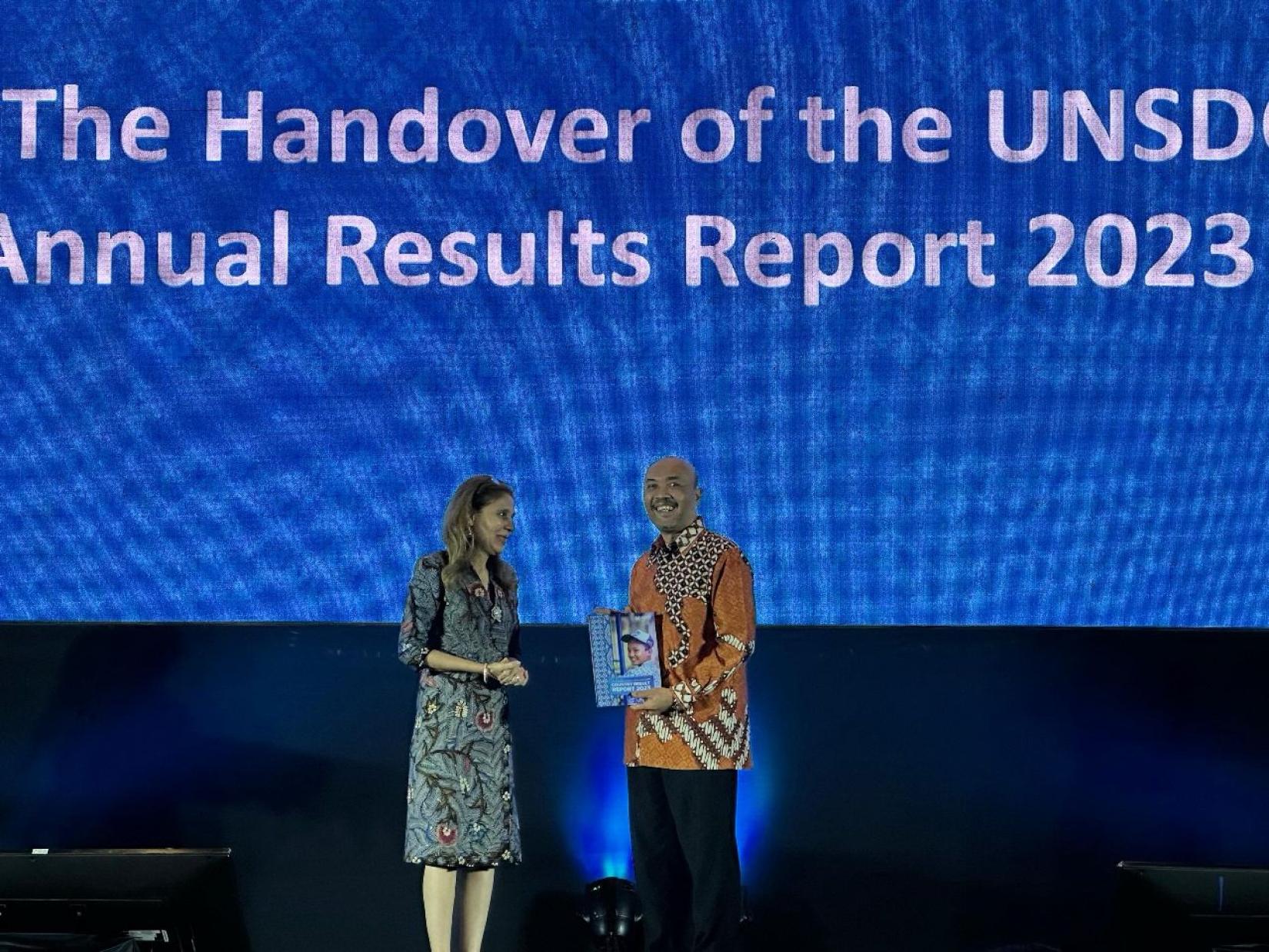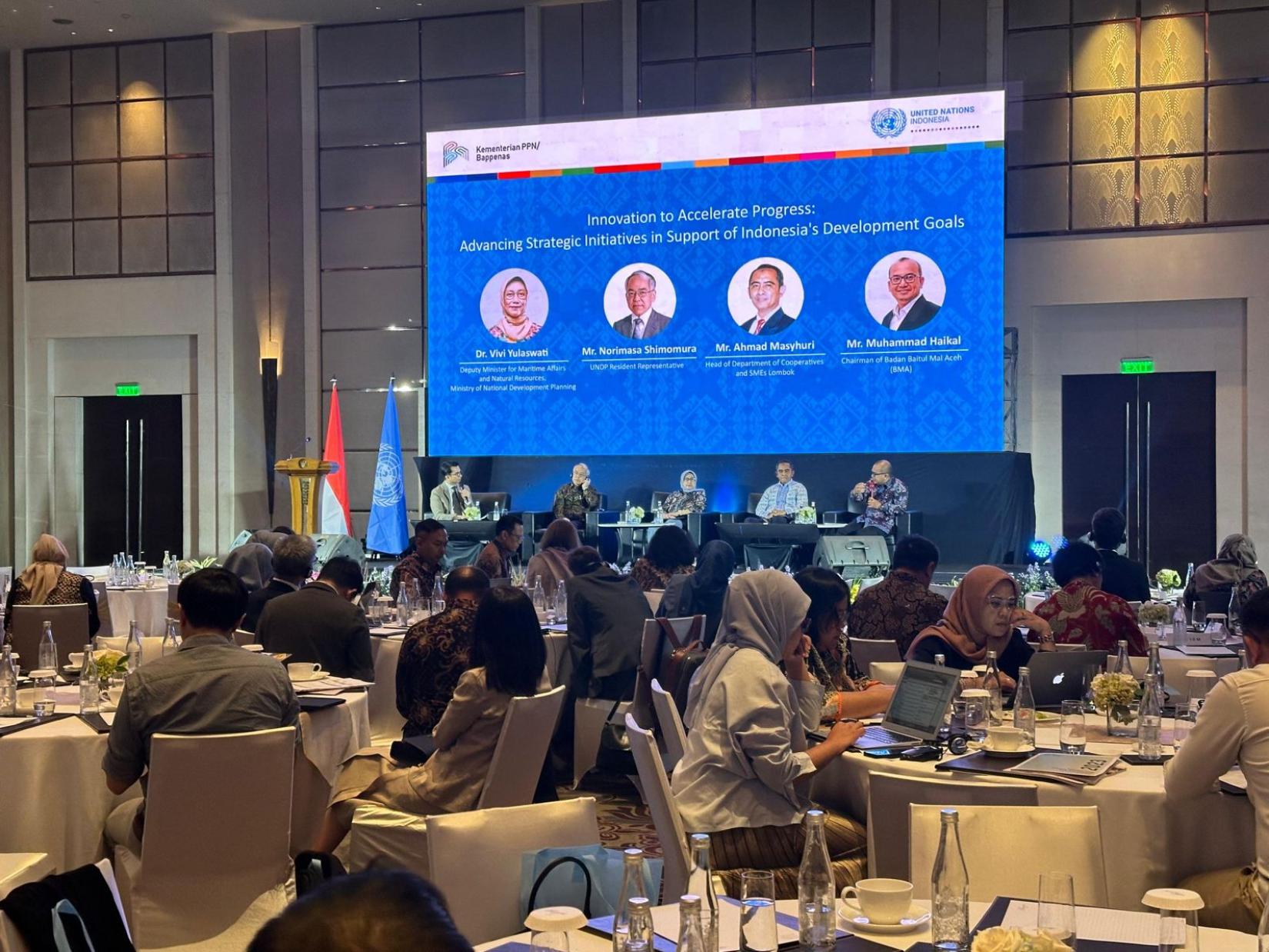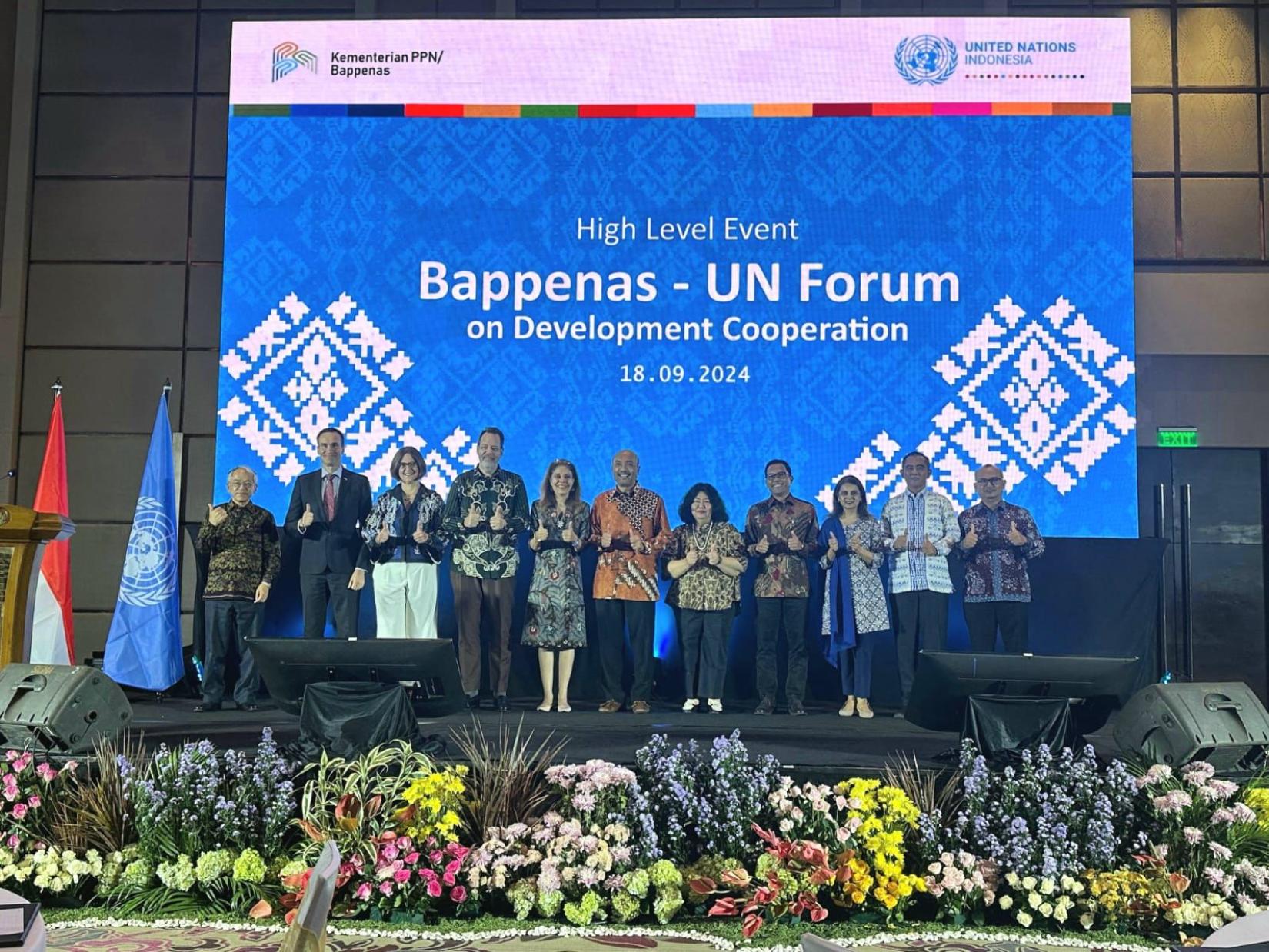Indonesia-UN Launched Annual Report Highlighting 2023 Contributions to Indonesia’s Development Agenda
18 September 2024
-----

JAKARTA, September 18 – Indonesia, represented by the Ministry of National Development Planning (Bappenas), and the United Nations, unveiled the UN in Indonesia’s 2023 Annual Results Report today. The report highlights the work and impact accomplished in the third year of implementing the 2021-2025 United Nations Sustainable Development Cooperation Framework (UNSDCF), the umbrella agreement under which 30 UN institutions collaborated to support the government’s development agenda. Year 2023 was important for Indonesia, with its role as ASEAN Chair unlocking new opportunities for regional cooperation, during a period of post-pandemic economic recovery, stronger institutions and a strengthened health architecture.
"We remain steadfast in our commitment to achieving the SDGs and addressing pressing global issues like climate change, economic disparities, and social inequalities. The next five years will be crucial as Indonesia implements the three pillars of transformation outlined in the National Long‐Term Development Plan: Social Transformation, Economic Transformation, and Governance Transformation," said Suharso Monoarfa, Minister for National Development Planning/Head of Bappenas at Bappenas-UN Forum held in Jakarta, Wednesday (18/9).
“The annual report is a testimony to our joint work: it not only encapsulates the dynamic cooperation between the Government of Indonesia and the United Nations but also aligns with Indonesia’s development aspirations, notably the 2020-2024 National Medium-Term Development Plan,” the United Nations Country Team wrote in the report. The report summarizes the results of the UN and Indonesia’s progress towards achieving the SDGs and is organized around the UNSDCF’s four strategic areas.
In the first area, Inclusive Human Development, results include improving the social protection system’s efficiency through socioeconomic registration, which affects over 118 million beneficiaries of various government social protection programs. Partnering with the National Food Agency, the UN supported a new food and nutrition initiative that benefitted 25.000 schoolchildren – and the lessons learnt are well placed to provide input into the country’s nutritious meals initiative. The proportion of people living with HIV that are using anti-retroviral drugs increased from 33 percent in December 2022 to 40 percent in December 2023.
Second, under the pillar of Economic Transformation, the UN assisted over 900 factories in upgrading to the latest technologies, enhancing their economic competitiveness while lowering their environmental impact. Over 330.000 farmers received support to improve agricultural practices and strengthen agricultural businesses. The palm oil industry has improved waste management and the utilization of products both at plantations and in factories–a result of support from the UN and its partners.

In the third area, Green Development, Climate Change, and Natural Disasters, the UN helped reduce over 87 million tons of greenhouse gas emissions and provided 134.000 households with clean energy from mini-hydro power plants and rooftop solar photovoltaic systems. A 420.000-ton reduction in marine waste was achieved as a result of waste reduction and recycling measures.
Lastly, under the Innovation to Accelerate Progress Towards the SDGs area, Indonesia, with UN support, raised US$ 2.2 billion in thematic bonds to help accelerate the achievement of SDG targets. The ultimate result of these bonds was positive impact on the lives of 6.4 million Indonesians. Over 800 million vaccination doses reached their intended destination with the use of the UN-developed SMILE application.
“As we embrace a new chapter in Indonesia’s governance and prepare for the new National Medium-Term Development Plan, it is pivotal that we seize this momentum to create a stronger, more inclusive partnership with the UN, we must also consider how our collaboration with the UN can be strengthened further,” Minister Suharso concluded. Through this forum, it is hoped that we can reaffirm the collective responsibility between government institutions, UN agencies, development partners, and the private sector to advance Indonesia’s development agenda.
The Annual Report was officially presented by the UN’s Resident Coordinator in Indonesia Gita Sabharwal to Minister Suharso at the annual Bappenas-UN forum, a premier platform for strategic dialogue between the Indonesian Government and UN agencies. “The UN is as good as the partnerships that it fosters in a country,” Gita said.
“It is these partnerships that allow a comprehensive UN approach to accelerate the progress towards the SDGs while ensuring that no one is left behind. We will continue to work very closely with Bappenas and the entire Indonesian government not only toward the SDG targets but also exploring innovative solutions to assist the government in inclusive growth, green and low-carbon development, and digital transformation.”

----------------
Media contact:
Ardian Budhi Nugroho
Head of Bureau for Public Relations, Archives, Executive Affairs
Ministry of National Development Planning/Bappenas
Siska Widyawati
National Information Officer United Nations Information Centre (UNIC)
siska.widyawati@un.org, 08788-4885489
Read United Nations Resident Coordinator in Indonesia, Gita Sabharwal's presentation here:


















